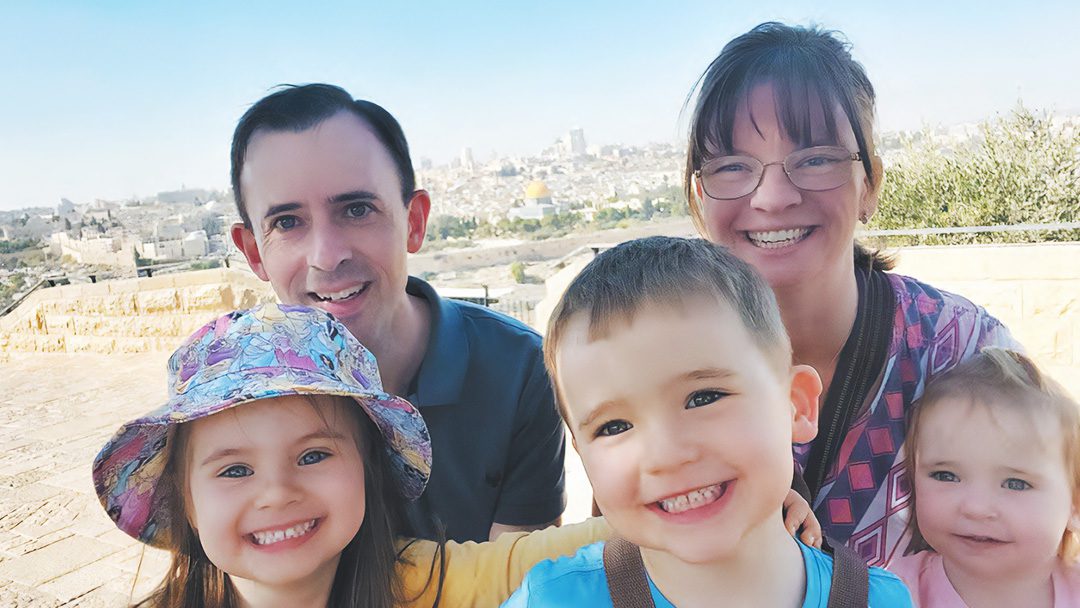The anticipation of the Messiah’s imminent arrival symbolises our commitment to living each day fully prepared for it to happen today. Like the parable of the ten virgins in Matthew 25 (where only half were ready when the bridegroom appeared), we must ask ourselves: Are we prepared if the Messiah were to return today? Would He find us actively spreading His teachings and making disciples? Would He discover us diligently working to fulfil His divine mission worldwide? Moreover, would our actions help the Jewish community recognise Jesus as their Messiah?
Following on from my previous article about hastening the return of Jesus, this article delves into a crucial aspect of restoration: living in a manner that kindles jealousy within the Jewish people, leading them to recognise Jesus as their Messiah—both the son of Joseph (the suffering servant) and the son of David (the triumphant King), ready to come and reign from Jerusalem.
When Jesus returns, the ensuing thousand-year era is often called the Messianic Age, or, in Jewish tradition, the Sabbath Age of Messiah. In this context, we explore a topic frequently discussed and debated: the restoration of the Sabbath.
For a moment, I would love for you to imagine that you are stepping into our home on a Friday evening, just as the sun is dipping below the horizon. You would immediately sense profound tranquillity—a sentiment shared by countless Christians worldwide. The air is filled with tantalising scents wafting from the kitchen while the warm glow of candles flickers across a beautifully decorated dinner table. Our children are impeccably dressed as we gather around our table to offer blessings to the Lord.

At this moment, sanctity and exhilaration exist, for it is the Sabbath—a day of rest—a Holy space in time set aside for the Lord. As you may have guessed, our family, like many others, chooses to honour the biblical seventh-day Sabbath. This decision, often associated with Judaism, extends beyond religious affiliation. It is a call to all believers in Messiah, whether Jewish or Gentile, to explore the importance of honouring this divine appointment.
No, just like you, we are believers in Jesus. However, I believe the Sabbath holds a special place in God’s design that dates back to the dawn of creation. Before temples, altars, scriptures, churches, or hymns existed, the Sabbath was already sanctified. It was the first institution of Holiness, the cornerstone of godliness—a day that God set apart as Holy, a day that endures throughout time.
Genesis 2:3 (ESV) reads, “So God blessed the seventh day and made it Holy because on it God rested from all His work that He had done in creation.”
Like many Gentiles (non-jews), we honour the Sabbath as a day devoted to God. It is a time for exploring the scriptures with our families, a day of rest from work, and a day of family togetherness—a day of relaxation and a commemoration of the six days of creation. It is a day where we break from the world’s concerns, shutting out our worries, pressures, anxieties, and daily routines as we fully immerse ourselves in Messiah’s perfect rest.
Jesus extends an invitation in Matthew 11:28, saying, “Come to Me, all who are weary and burdened, and I will provide you with rest.” The Sabbath isn’t a burden; it’s a gift, a gentle beckoning to meet with the Lord and encounter His tranquillity.
Hebrews 4 portrays the Sabbath as a glimpse of God’s kingdom and the World to Come, paralleling salvation in Jesus with the Sabbath. Just as God’s rest marked the end of creation, our Sabbath rest signifies the completed work of redemption, emphasising salvation through Jesus’s flawless and perfect work.
The Sabbath, like God’s grace, is a free gift. We labour for six days, but on the seventh, we pause to acknowledge God’s You might be wondering of me, “Is he a Seventh-day Adventist or Jewish?”
welcome the Sabbath with wine and bread (reminiscent of Passover rituals), making each Sabbath meal an opportunity to remember the Messiah, who is our source of blessing, holiness, peace, and salvation. Jesus represents our new creation, the embodiment of grace, and the bringer of the future Sabbath rest for all creation. He is our Sabbath rest, and we find our rest in Him. Some argue that Jesus broke the Sabbath, citing instances of Him healing or performing activities on that day. However, a closer look shows His actions aligned with Jewish law, allowing acts of compassion and life-saving provision, declaring that our sustenance
comes from His hand. This echoes the message of grace, where our righteousness falls short. When we rest in the Messiah, we embrace the perfection of His new creation. The Sabbath reminds us of our freedom in God’s service. We are no longer ceaseless labourers; it compels us to acknowledge the One who created time. It’s a day when we affirm that we are God’s servants, liberated by His grace.
The book of Revelation reveals a future era of peace, akin to the Sabbath, known as the Messianic Era. Prophets believed the Sabbath foreshadows this age of peace, where all humanity will observe the Sabbath, fulfilling Isaiah 66:23. If the Sabbath symbolises future blessings and the Messiah embodies its essence, it logically applies to all of Jesus’s disciples. Every Friday night, we deeds on the Sabbath. He prioritised compassion over some aspects of ceremonial rules, echoing God’s preference for mercy over sacrifice. Claims of Jesus changing the Sabbath to Sunday lack biblical backing; neither He nor His apostles suggest such a shift.
While Sunday gatherings are more than acceptable, they don’t replace the biblical Sabbath. (We also have a Sunday service.)
Jesus faithfully observed the Sabbath by attending synagogue weekly and regarding it as a day of rest, healing, and divine connection. His debates with the Pharisees aimed to restore the Sabbath’s compassionate spirit, not abolish it. He upheld the Sabbath as a divine gift, as confirmed by His statement, “The Son of Man is Lord of the Sabbath.” After Jesus’s resurrection, His disciples continued Sabbath observance, as seen in Luke 23:54–56.
According to the Bible, the Sabbath is a Holy day set apart by God, offering rest, peace, a reminder of creation, and a glimpse of the Messianic Era. Jesus upheld its significance and restored its true meaning. As Christians, we can find deep spiritual enrichment in observing the Sabbath, which draws us closer to our Creator and Saviour. It’s a day of grace, freedom, and unity among God’s children as we rest in Jesus, the Lord of the Sabbath.
I both invite and implore you to start exploring what honouring the Sabbath might look like in your life. If peace and blessings are what you have to gain, then what do you have to lose? If you would like more information on how to learn more, simply visit kc.org.au/courses, where we have resources on how to learn more.












0 Comments